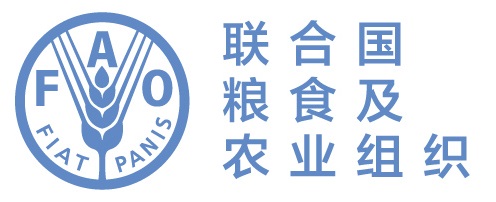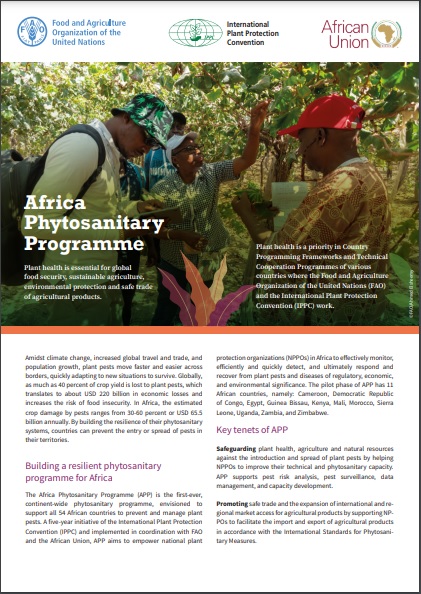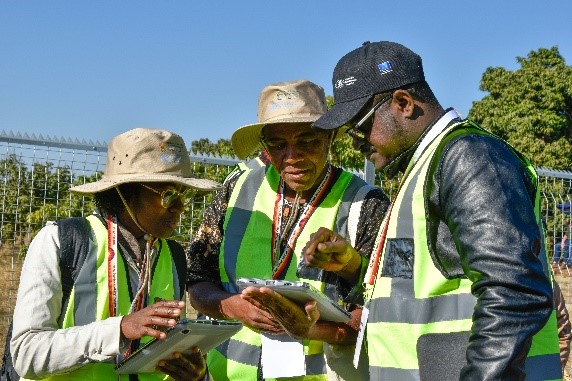
Overview

The Africa Phytosanitary Programme (APP) is an initiative of IPPC and the African Union Commission on Agriculture, Rural Development, Blue Economy, and Sustainable Environment (ARBE) designed to strengthen the technical capacity of phytosanitary professionals across Africa, equipping them with modern scientific techniques and digital tools to better monitor, detect, identify, prevent harmful plant pests.
APP provides:
-
training and technical assistance
-
state-of-the-art tablets with geospatial pest surveillance software
-
standardised pest survey protocols and survey materials
to help countries collect and analyse data on pests that threaten agriculture, trade and the environment.
APP fosters collaboration among countries, encouraging knowledge sharing and coordinated regional action to enhance plant protection, food security, biosecurity and safe trade.
The APP is being rolled out in 54 African countries, starting with a pilot (September 2023) in 11 countries: Cameroon, Democratic Republic of Congo, Egypt, Guinea-Bissau, Kenya, Mali, Morocco, Sierra Leone, Uganda, Zambia and Zimbabwe. Phase two, from June 2025, includes Algeria, Cape Verde, Chad, the Republic of Congo, Liberia, Malawi, Senegal, South Africa and Tunisia.
With climate change, global travel and trade accelerating the spread of pests and threatening agriculture, biodiversity and economies, early detection and prevention are more critical than ever. APP thus aims to address the limited technical expertise in many African countries, helping them prevent and respond to pest threats more effectively.
Why APP?
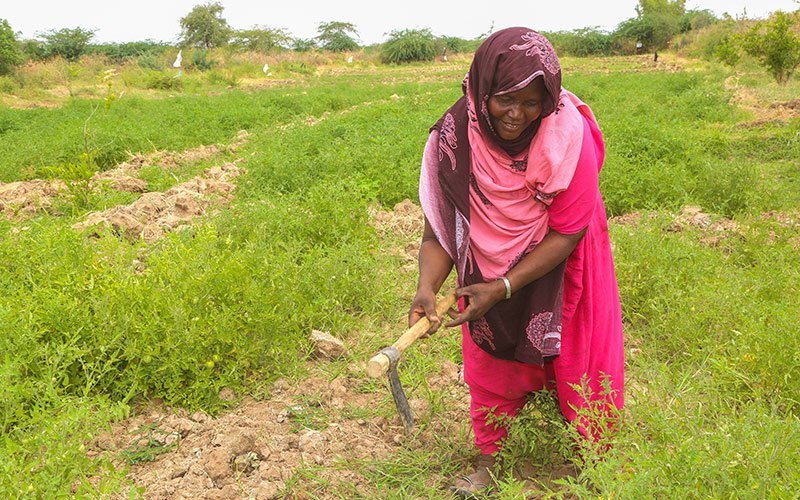
Agriculture and related value chains drive most economies in Africa, contributing about 40 percent of the continent’s gross domestic product and 15 percent of its exports, and employing between 60 and 80 percent of its population. The bulk of intra-African trade (75 percent) is in agricultural products, which will represent a major trade sector in the African Continental Free Trade Area.
However, pests cause crop losses of about 30–40 percent in Africa and millions of dollars are lost to managing and controlling them. From fall armyworm and desert locust to fusarium wilt and fruit flies, pests are a serious threat to food security in Africa and they limit the competitiveness of Africa’s agricultural products in regional and global markets.
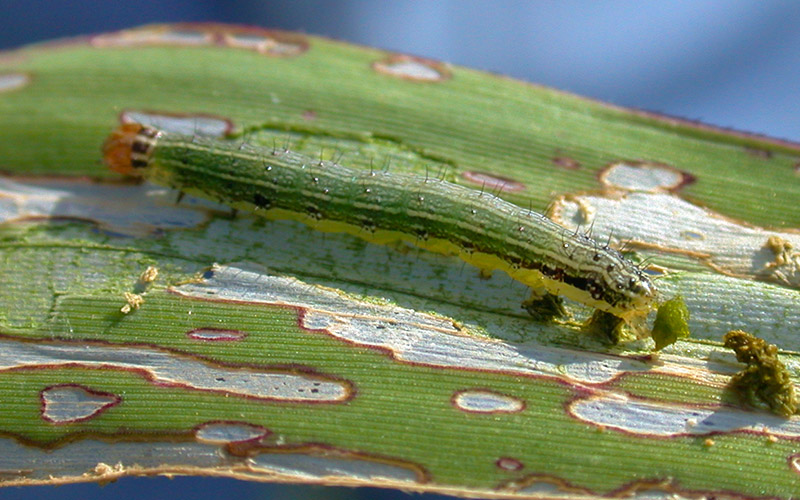
Improvements in the agricultural sector in Africa, such as developing robust early warning and surveillance systems for pests, expanding the technical capabilities of phytosanitary personnel and enhancing the functionality of phytosanitary infrastructure, will improve crop production, support socioeconomic development and boost the trade of agricultural products within and from Africa to the world. The APP will support the improvement of Africa’s phytosanitary technical capacity and infrastructure so that countries are always on the lookout to prevent, detect and contain pest incursions.
The African Union is currently implementing its Plant Health Strategy for Africa (2022–2036), with a goal to “develop and implement a vibrant, robust and practical plant health system for Africa to improve food security and nutrition, improved livelihoods and trade”. The APP provides a timely opportunity to support attainment of this goal, the 2023 Agenda for Sustainable Development, and FAO's strategic objectives, which are anchored in the four betters (better production, better nutrition, a better environment and a better life).
What key outcomes are envisaged?
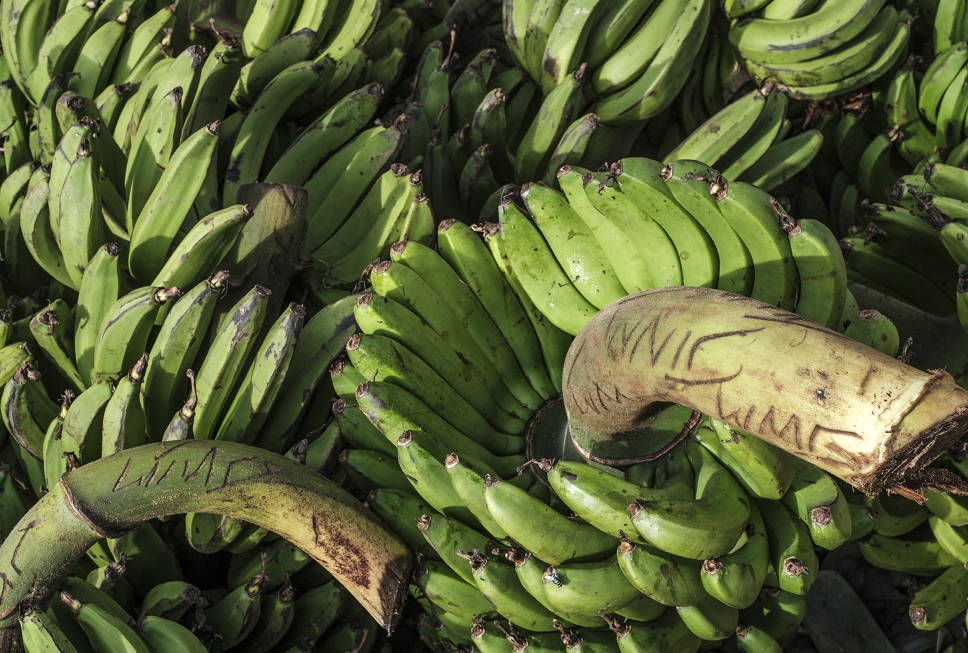
The APP has eight expected outcomes:
- enhanced capacity to manage and prevent the spread of pests;
- improved pest surveillance and early warning systems;
- improved food security and agricultural resilience against invasive plant pests
- harmonized phytosanitary practices, including inspection and other regulatory border activities;
- coordinated regional plant-protection strategies;
- development of technical skills;
- improved trade facilitation and opportunities; and
- enhanced regional collaboration on emerging plant health issues.
APP implementation strategy
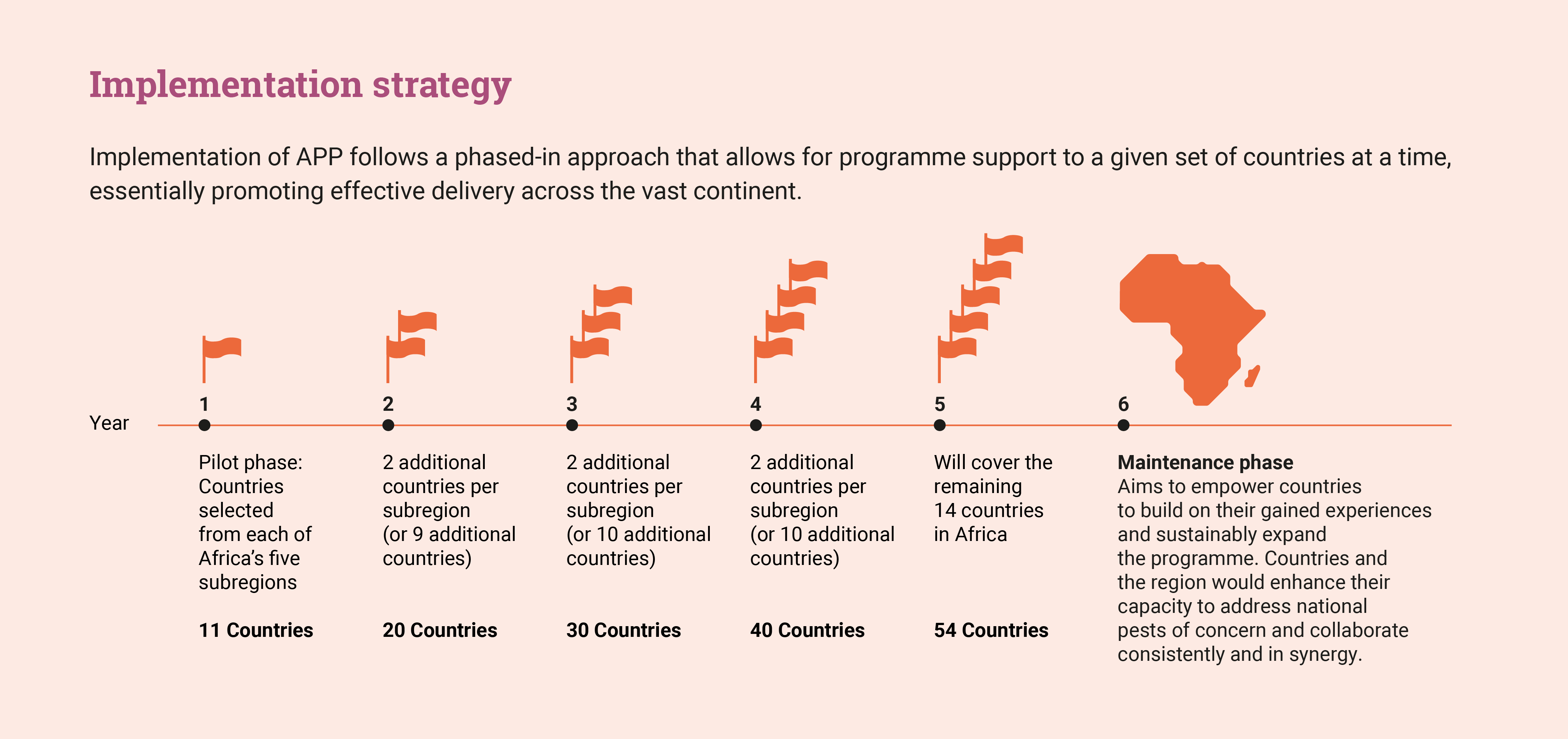
- 54 target countries in Africa
- 11 countries in pilot phase
- 9 countries in phase two
- 5-year programme
- 8 planned milestones
Partnerships and funding
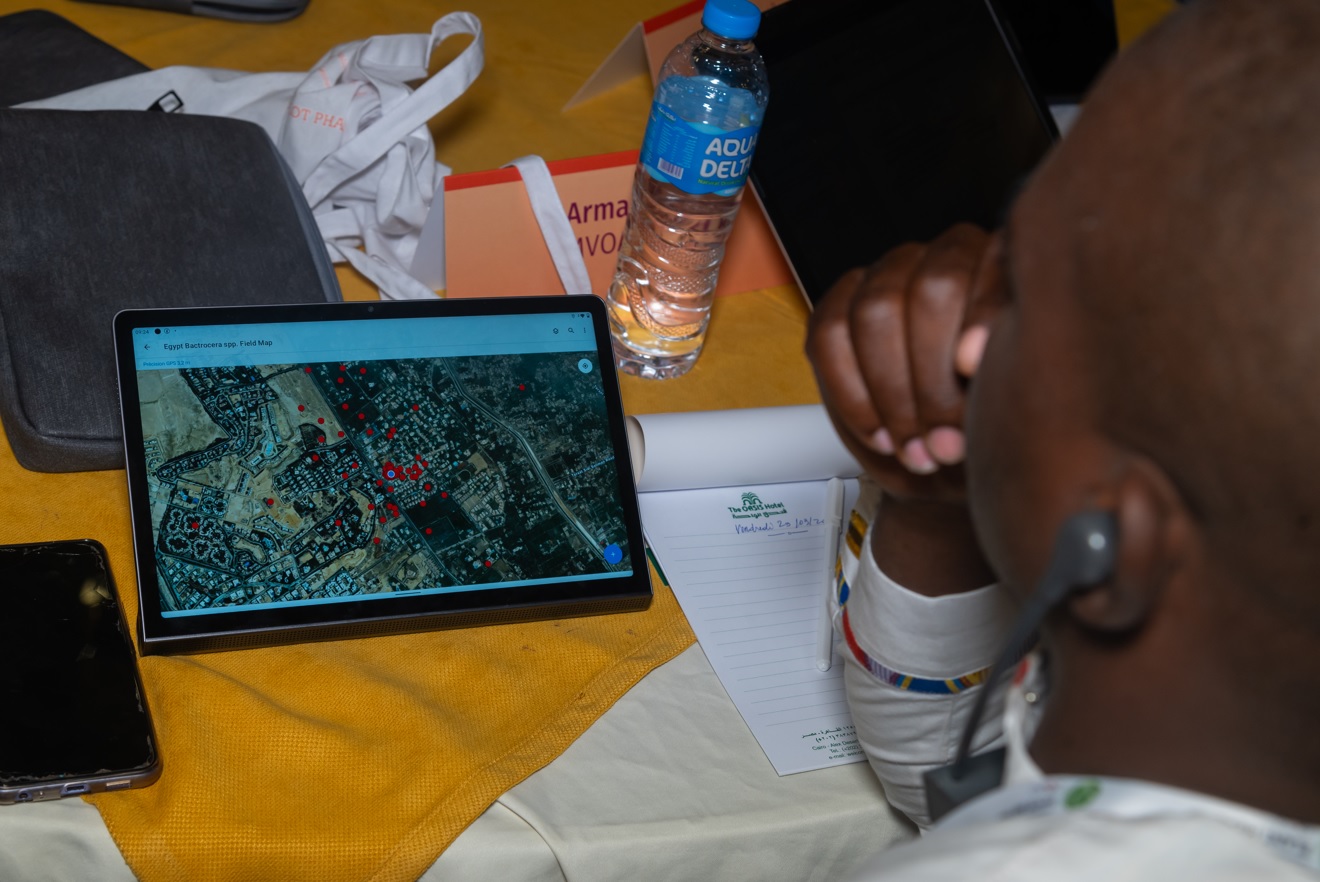
The IPPC Secretariat implements APP in collaboration with:
African Union Inter-African Phytosanitary Council (AU-IAPSC)
Near East Plant Protection Organisation (NEPPO)
National plant protection organizations (NPPOs)
FAO Regional, Subregional and Country Offices
African Regional Economic Communities (RECs)
Funding is through generous contributions from the European Union, the United Kingdom of Great Britain and Northern Ireland and FAO. The United States Department of Agriculture (USDA) Animal and Plant Health Inspection Service (APHIS) funded the pilot phase. The programme welcomes technical and financial support through the APP Multidonor Trust Fund at the IPPC Secretriat.
APP objective
To improve the early detection of pests and to position national and regional plant protection organizations (NPPOs and RPPOs) to prepare for, respond to and recover from plant pests in a timely manner.
Key tenets of APP
Safeguarding plant health, agriculture and natural resources against the introduction and spread of plant pests by helping NPPOs to improve their technical and phytosanitary capacity through pest risk analysis, pest surveillance, data management, and capacity development.
Promoting safe trade and the expansion of international and regional market access for agricultural products by supporting NPPOs to facilitate the import and export of agricultural products in accordance with the International Standards for Phytosanitary Measures.
Resources and training materials
News and updates
- SPOTLIGHT: From vulnerability to food resilience: Improved pest surveillance to catalyse Sierra Leone’s agricultural improvement
- Egypt Hosts National Training under the Africa Phytosanitary Programme (APP) to Strengthen Plant Health and Trade
- FAO and IPPC Equips 50 Crop Inspectors and Researchers to Strengthen Uganda’s Digital Pest Surveillance
- Enhancing local capacity for digital surveillance of key quarantine pests in Zimbabwe
Photos
APP advocacy visits to the Democratic Republic of Congo, Egypt, Guinea-Bissau, Kenya, Mali, Morocco, Sierra Leone, Uganda, Zambia, Zimbabwe
Presentations
Links
Plant Health Strategy for Africa (2022 – 2036)
